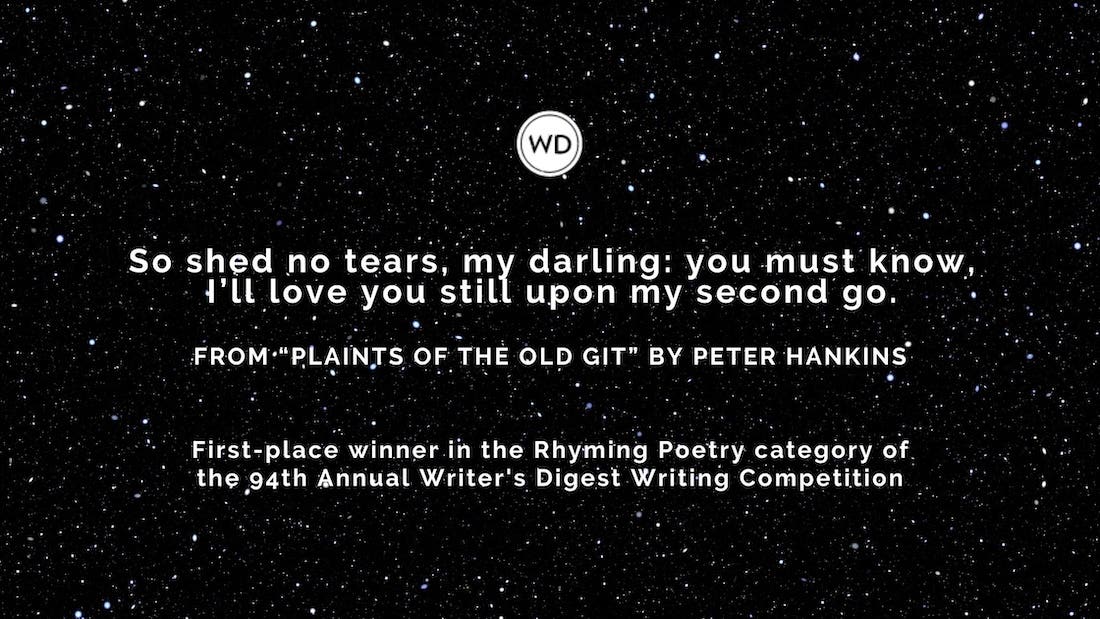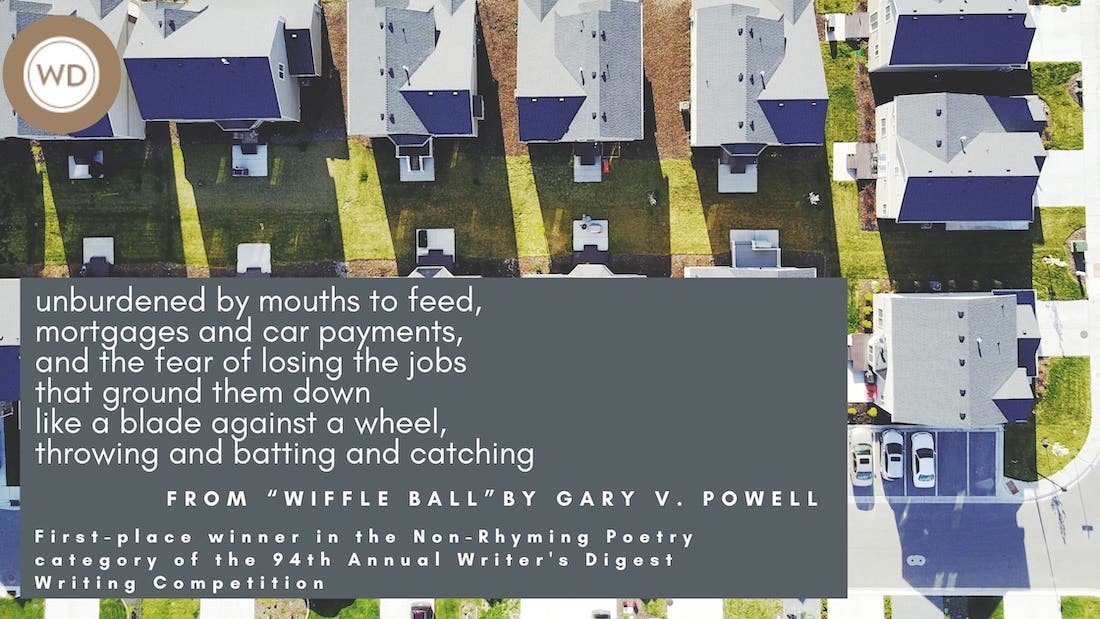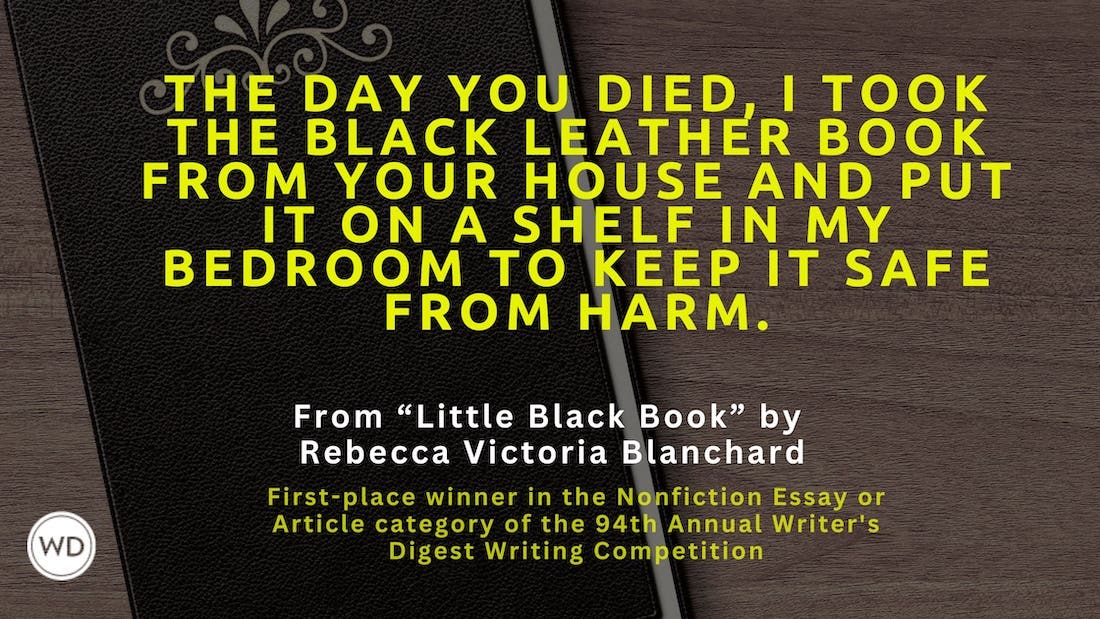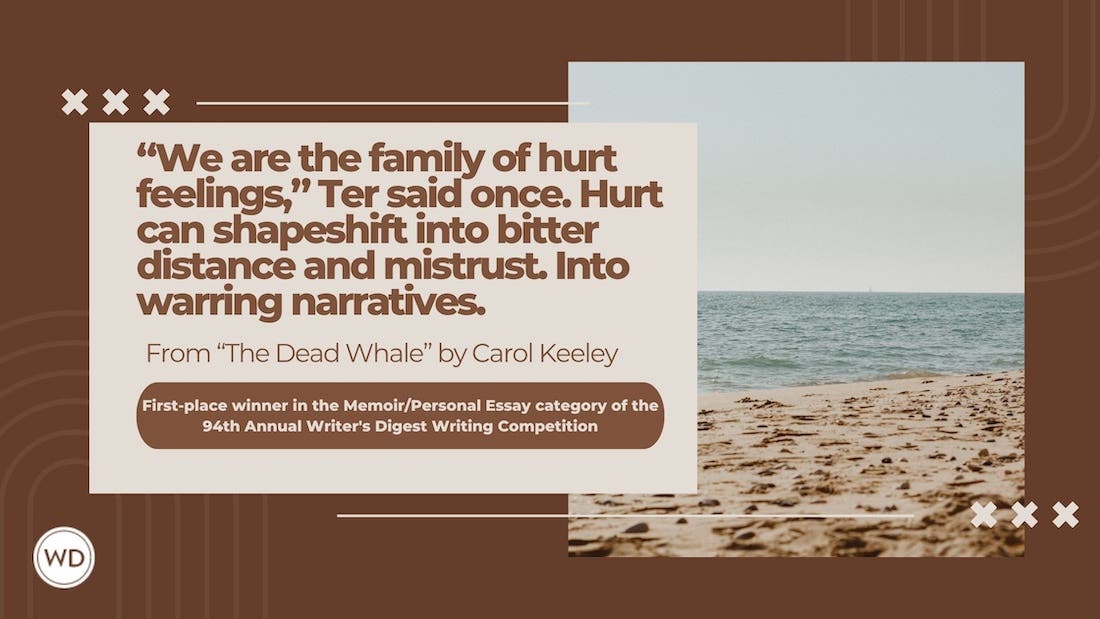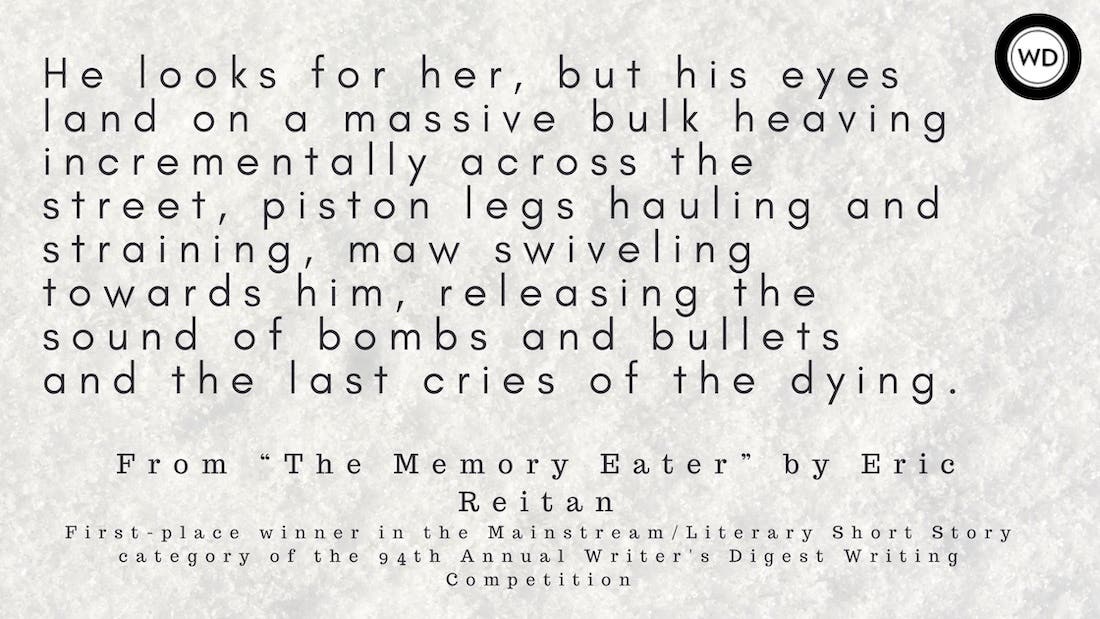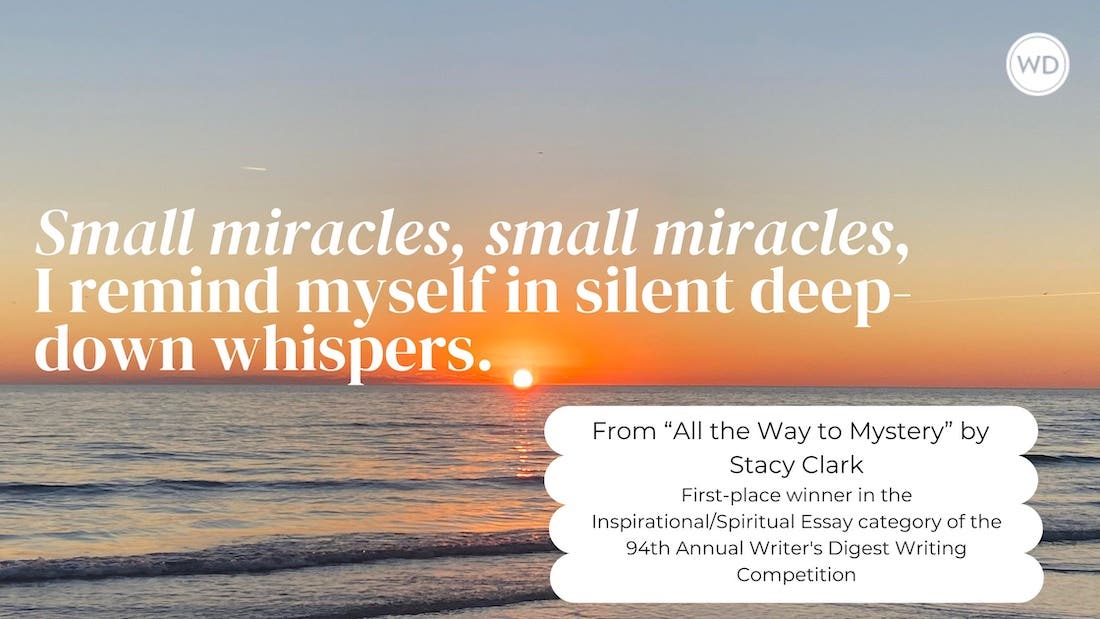Frequently Asked Questions
Q: Is it okay to have illustration pictures on the cover? Please send the text only Q: If there is a word count, how many words per page am I…
Q: Is it okay to have illustration pictures on the cover?
Please send the text only
Q: If there is a word count, how many words per page am I allowed?
No preference
Q: How large of print is allowed?
No preference
Q: Are pen names allowed?
Pen names are fine. Write your pen name on all forms etc. so there are no mistakes on credits. Please be advised that we only need your real name if you are chosen as a winner (in order to issue prizes).
Q: What if I am not a U.S. resident?
WD writing competitions are open to non-U.S. residents as well. Please refer to the entry form and guidelines. All entry fees are due in U.S. Dollars.
Q: Is there an age limit for entrants?
No
Q: What if I wanted to submit only part of my novel into the competition ( to stay with in the maximum number of words)?
If you submit a portion of a novel please understand that it will be judged as a complete story, not part of another work, so it needs to a complete story in and of itself.
Q: Can the same title be entered in multiple categories of the WD Annual?
Yes, it can
Q: When will winners be notified?
Top Award Winners will be notified by mail or email before October 12, 2015. The top 10 winners in each category will be listed in the December 2015 issue of Writer's Digest. All winners will be listed in the 84th Annual Writer's Digest Competition Collection and at www.writersdigest.com after the December issue is published. Prizes will be mailed by November 7, 2015.
Q: What are the word count requirements for each category?
- Memoirs/Personal Essay, Magazine Feature Article and Children's/Young Adult Fiction: 2,000 words maximum.
- Mainstream/Literary Short Story and Genre Short Story: 4,000 words maximum.
- Inspirational Writing: 2,500 words maximum.
- Rhyming Poem and Non-rhyming Poem: 32 lines maximum.
- Stage Play Script or Television/Movie Script: Send the first 15 pages in standard script format, plus a one-page synopsis.
Complete scripts are not eligible. Scripts—original or written for any series in production on or after January 1, 2014—are eligible; adaptations will not be accepted.
Q: What are possible category definitions?
Genre Fiction: Stories that fit into a specific classification such as mystery, romance, science fiction, horror or fantasy.
Mainstream/Literary Fiction: Serious, non-formulaic fiction that does not fit into a genre.
Personal Essay: This is an article that is distinguished by and draws its power from its personal viewpoint. In such pieces, the author examines an issue, event, experience, place or idea and offers an opinion or some other reaction to it. The goal of an essay may be to explain, justify or persuade. The last is most often the goal of newspaper op-ed essays. Examples of other types of essays may be found in such magazine columns as Redbook's "A Young Mother's Story" or Writer's Digest's "Chronicle".
Feature Article: This is an article that is "reported"—the writer has researched a topic and explains the topic to readers. Often there is a "service" angle—a clear benefit that readers can take away from the article. There are many types of feature articles: how-to articles, personality profiles, Q&A's, informational pieces, travel articles. They may include events drawn from the author's personal experience, but the focus of the article is on providing readers with information. Features make up the bulk of most magazines' editorial offerings.
Inspirational: An article, essay or story with an explicitly religious, spiritual or otherwise inspirational focus. An article that's suitable for Guideposts or St. Anthony Messenger, for example, would be inspirational. An essay on how the power of Christ, (or Buddha, or Allah or Vashti) touched your life would be inspirational. A story about the power of religion, the power of prayer, or the power of the universe would be inspirational.
Rhyming Poetry: When the last word of some or all lines rhyme with each other. Ask yourself: What is the rhyme scheme of my poem? If you don't understand what that question means, your poem is probably non-rhyming. Most formal poetry is considered rhyming poetry (such as sonnets or ballads).
Non-rhyming poetry: When there is no recognizable or purposeful rhyme scheme or structure. Free verse falls under this category.
*Judges reserve the right to re-categorize entries.
Q: How do I subscribe to Writer's Digest?
Visit www.writersdigest.com and click on the link
Q: Are there other writing competitions?
Yes! Visit http://www.writersdigest.com/competitions/writing-competitions for other competitions for writers.




